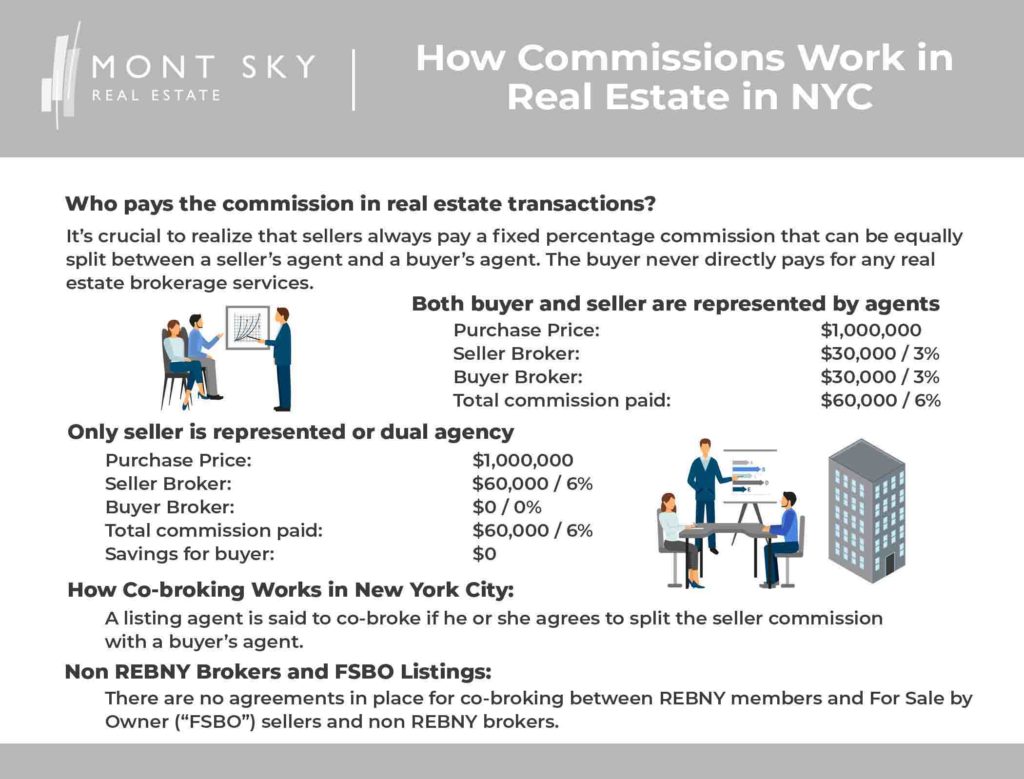Who pays the commission in real estate transactions?
It’s important to understand how commissions work in real estate in NYC before you start your property search. It’s crucial to realize that sellers always pay a fixed percentage commission that can be equally split between a seller’s agent and a buyer’s agent. The buyer never directly pays for any real estate brokerage services!
Buyers are considered to be “free agents” and never have to sign any type of exclusive buyer agency agreement in NYC. However, since the seller is liable for the entire commission, sellers always sign an Exclusive Right to Sell Listing Agreement with their listing broker. This listing agreement will stipulate that the seller will owe a set percentage commission (i.e. 5-6% which is common in NYC) if the property is sold, regardless of whether the buyer has representation or not. Therefore, if the buyer is unrepresented, the listing agent will simply collect double commission!
Both buyer and seller are represented by agents
Purchase Price: $1,000,000
Seller Broker: $30,000 / 3%
Buyer Broker: $30,000 / 3%
Total commission paid: $60,000 / 6%
Only seller is represented or dual agency
Purchase Price: $1,000,000
Seller Broker: $60,000 / 6%
Buyer Broker: $0 / 0%
Total commission paid: $60,000 / 6%
Savings for buyer: $0
How Co-broking Works in New York City:
A listing agent is said to co-broke if he or she agrees to split the seller commission with a buyer’s agent. Fortunately, co-broking is automatic and contractual in NYC between REBNY Member Firms. This is because every REBNY Member Firm signs a RLS Universal Co-Brokerage Agreement as a requirement of membership. This co-brokerage agreement contractually obligates each firm to co-broke 50% or more of the total seller commission with every other member. There is no need for buyers’ agents to ask what the co-broke is as they can look it up in RLS via RLS vendors such as Nestio, OLR, RealtyMX or RealPlus. This is why it is advantageous and easier for REBNY member buyers’ agents to search for listings in RLS versus outside search websites like StreetEasy. That’s because every listing they find in RLS will automatically guarantee them a commission!
Non REBNY Brokers and FSBO Listings:
There are no agreements in place for co-broking between REBNY members and For Sale by Owner (“FSBO”) sellers and non REBNY brokers. Smaller “mom and pop” brokerages and companies based far out in the boroughs will often times not be REBNY members. Sometimes they may agree to co-broke, in which case a buyer’s agent should at least get the co-broke amount in writing. Often times, sketchy non REBNY brokers will outright refuse to co-broke. By refusing to work with buyers’ agents, they are violating their fiduciary duty to their sellers and their duty to treat all parties fairly. However, even though listing agents have a duty to honor a buyer’s right to work with the broker of their choice, listing agents are not required to split commission unless there is a pre-existing agreement in place.
Attention new agents: Please be self-reliant. If you don’t know how to do something or want to learn more about a topic, simply search for it online. You can find out how to do anything online. You can consolidate questions you can’t figure out yourself to ask all at once during office hours.
Note: if you are searching for listings for a buyer client on a public search website like Brownstoner, StreetEasy or the New York Times, please remember to double-check whether the listing is co-broked in RLS! Be especially careful if you are searching farther out in the boroughs such as southern Brooklyn, eastern Queens or northern Bronx. Over time, you will be able to recognize REBNY firms you’ve seen before. This way you’ll automatically be careful to check for the co-broke when you come across an unfamiliar brokerage.
Related articles & additional resources
Condo vs. Co-op
What’s the difference between condominium and cooperative apartments in New York City? Read our comprehensive guide on the various property types available for purchase in NYC before you begin your search. We’ll compare the pro’s and con’s of condos vs co-ops as well as townhouses and multi-family properties. Which one is right for you?
Looking for sales leads?
What’s the point of joining a brokerage that doesn’t give you something to do? Yet that is exactly how the rest of the traditional brokerage community operates. Agents are expected to source all of their clients, execute the entire deal on their own and then receive only 30-50% of the commission. That doesn’t sound fair to us at all! Contact us today to jump start your career!
NYC Closing Process
The NYC co-op and condo closing process is surprisingly easy as long as you have accepted an offer from a qualified home buyer. Assuming you’ve worked with a Mont Sky Real Estate agent on your home sale, you’ve already cleared the toughest part of selling your home in NYC which is properly engaging the 90% of buyers who are represented by agents!






